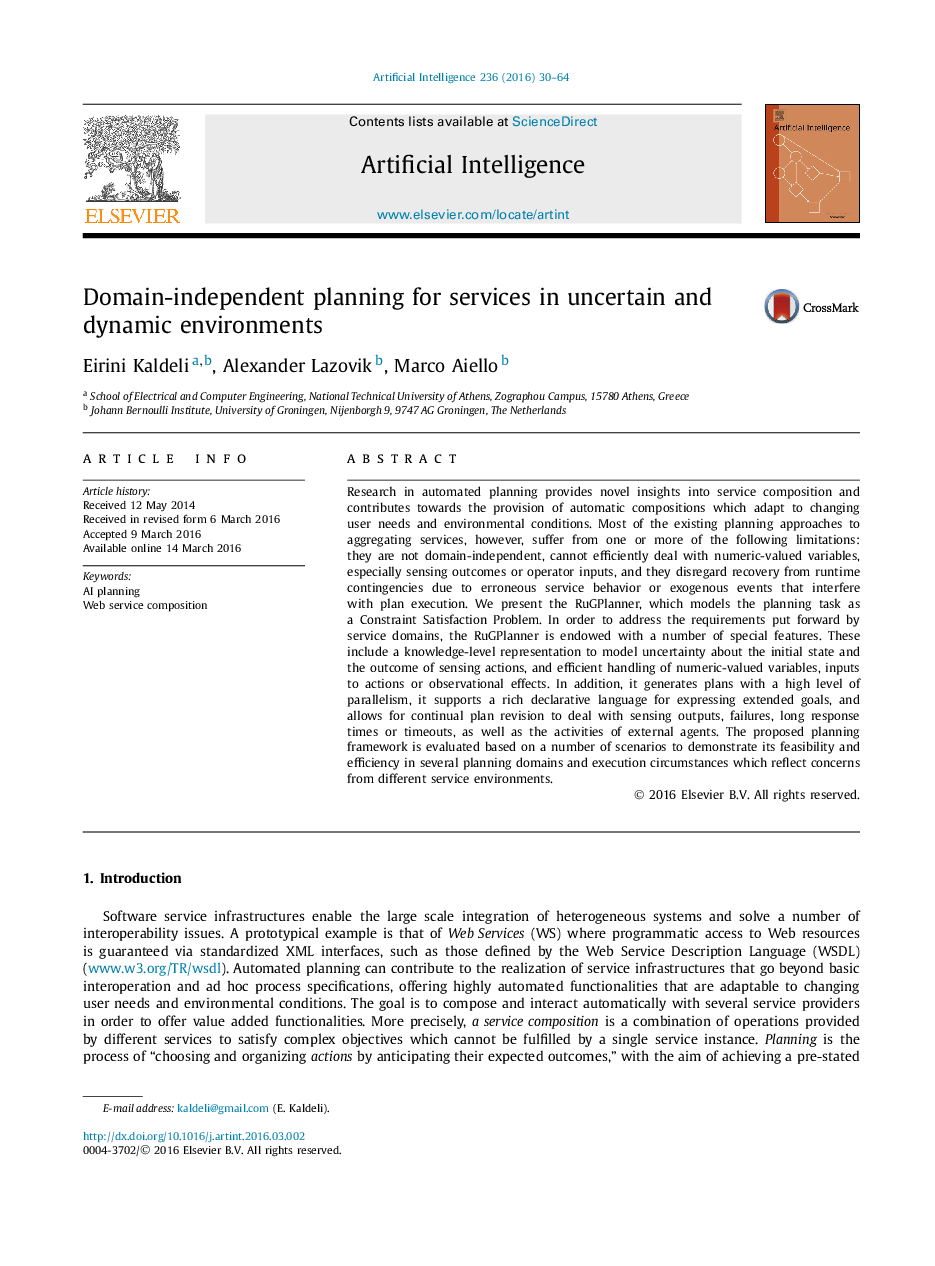| Article ID | Journal | Published Year | Pages | File Type |
|---|---|---|---|---|
| 6853117 | Artificial Intelligence | 2016 | 35 Pages |
Abstract
Research in automated planning provides novel insights into service composition and contributes towards the provision of automatic compositions which adapt to changing user needs and environmental conditions. Most of the existing planning approaches to aggregating services, however, suffer from one or more of the following limitations: they are not domain-independent, cannot efficiently deal with numeric-valued variables, especially sensing outcomes or operator inputs, and they disregard recovery from runtime contingencies due to erroneous service behavior or exogenous events that interfere with plan execution. We present the RuGPlanner, which models the planning task as a Constraint Satisfaction Problem. In order to address the requirements put forward by service domains, the RuGPlanner is endowed with a number of special features. These include a knowledge-level representation to model uncertainty about the initial state and the outcome of sensing actions, and efficient handling of numeric-valued variables, inputs to actions or observational effects. In addition, it generates plans with a high level of parallelism, it supports a rich declarative language for expressing extended goals, and allows for continual plan revision to deal with sensing outputs, failures, long response times or timeouts, as well as the activities of external agents. The proposed planning framework is evaluated based on a number of scenarios to demonstrate its feasibility and efficiency in several planning domains and execution circumstances which reflect concerns from different service environments.
Keywords
Related Topics
Physical Sciences and Engineering
Computer Science
Artificial Intelligence
Authors
Eirini Kaldeli, Alexander Lazovik, Marco Aiello,
